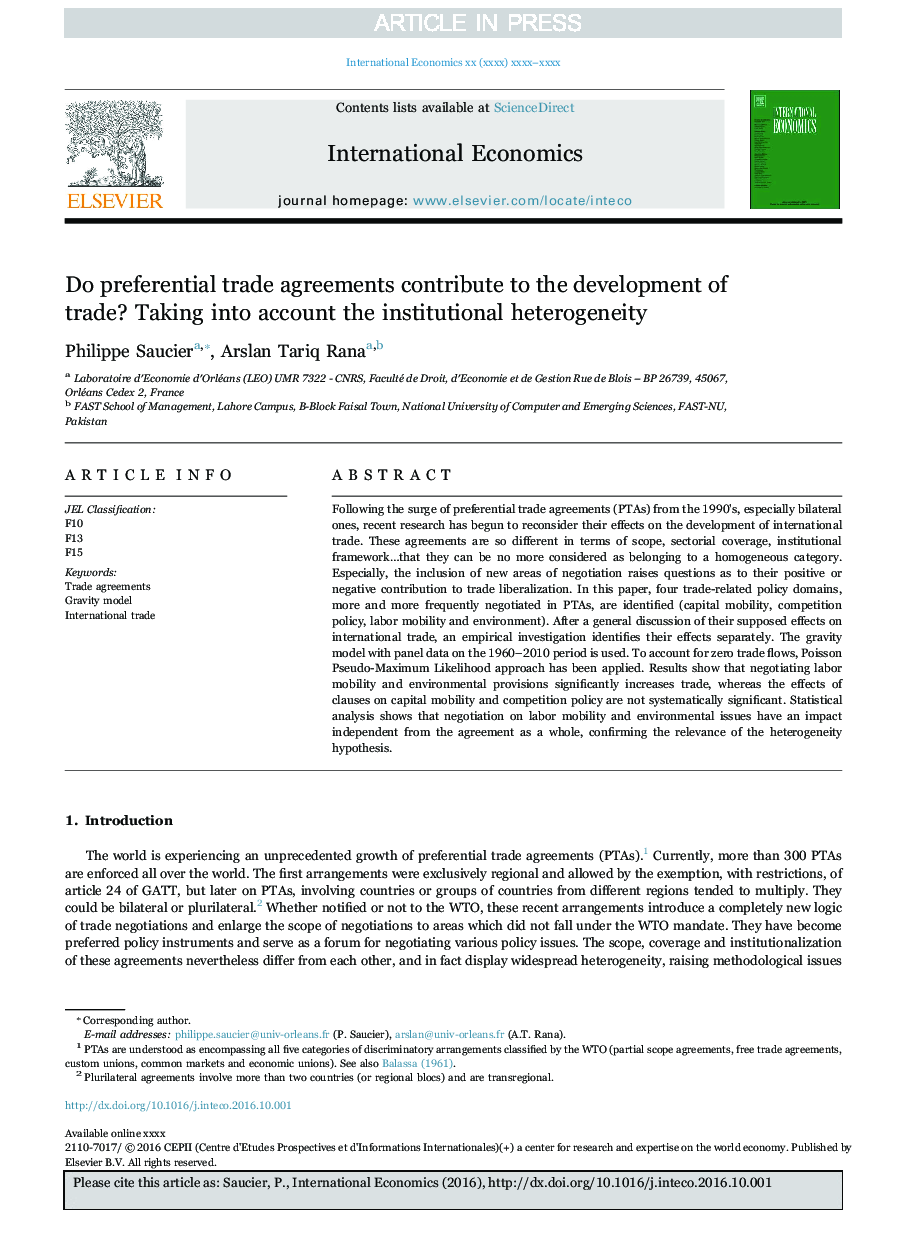| کد مقاله | کد نشریه | سال انتشار | مقاله انگلیسی | نسخه تمام متن |
|---|---|---|---|---|
| 5106306 | 1481345 | 2017 | 16 صفحه PDF | دانلود رایگان |
عنوان انگلیسی مقاله ISI
Do preferential trade agreements contribute to the development of trade? Taking into account the institutional heterogeneity
ترجمه فارسی عنوان
آیا موافقت نامه های تجاری ترجیحی به توسعه تجارت کمک می کنند؟ با در نظر گرفتن ناهمگنی نهادی
دانلود مقاله + سفارش ترجمه
دانلود مقاله ISI انگلیسی
رایگان برای ایرانیان
کلمات کلیدی
موضوعات مرتبط
علوم انسانی و اجتماعی
اقتصاد، اقتصادسنجی و امور مالی
اقتصاد، اقتصادسنجی و مالیه (عمومی)
چکیده انگلیسی
Following the surge of preferential trade agreements (PTAs) from the 1990's, especially bilateral ones, recent research has begun to reconsider their effects on the development of international trade. These agreements are so different in terms of scope, sectorial coverage, institutional frameworkâ¦that they can be no more considered as belonging to a homogeneous category. Especially, the inclusion of new areas of negotiation raises questions as to their positive or negative contribution to trade liberalization. In this paper, four trade-related policy domains, more and more frequently negotiated in PTAs, are identified (capital mobility, competition policy, labor mobility and environment). After a general discussion of their supposed effects on international trade, an empirical investigation identifies their effects separately. The gravity model with panel data on the 1960-2010 period is used. To account for zero trade flows, Poisson Pseudo-Maximum Likelihood approach has been applied. Results show that negotiating labor mobility and environmental provisions significantly increases trade, whereas the effects of clauses on capital mobility and competition policy are not systematically significant. Statistical analysis shows that negotiation on labor mobility and environmental issues have an impact independent from the agreement as a whole, confirming the relevance of the heterogeneity hypothesis.
ناشر
Database: Elsevier - ScienceDirect (ساینس دایرکت)
Journal: International Economics - Volume 149, May 2017, Pages 41-56
Journal: International Economics - Volume 149, May 2017, Pages 41-56
نویسندگان
Philippe Saucier, Arslan Tariq Rana,
